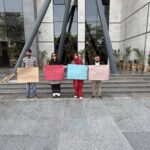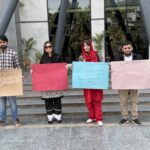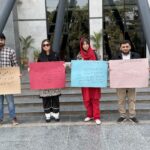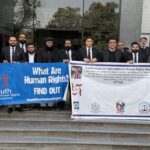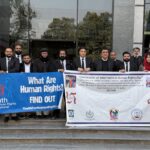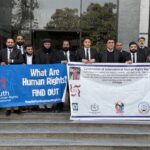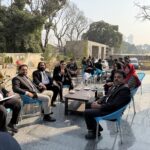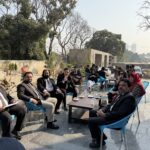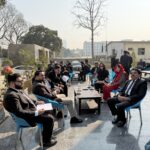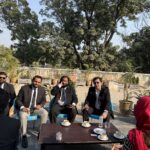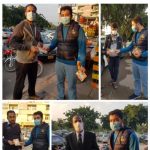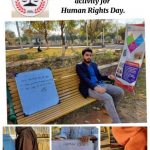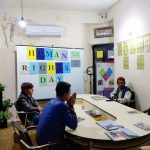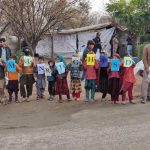10 December 2025 Human Rights Day
at Islamabad High Court
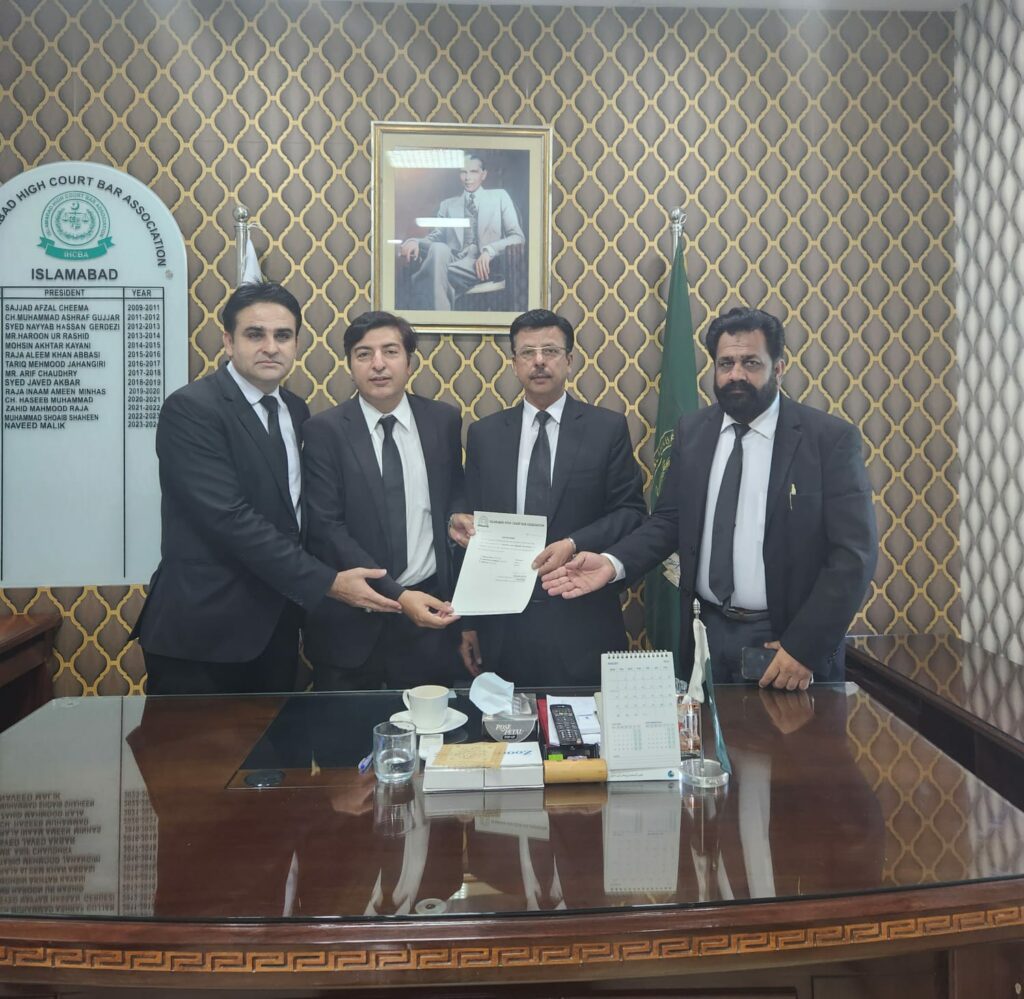
We sincerely thanks the Islamabad High Court Bar Association President, Naveed Malik, Advocate, for nominating Mr. Sheraz Khan, Attorney at Law, High Court, as the “Chairman of the Overseas Law Reform Committee.” We accept the responsibility of advocating for the rights of overseas individuals through the appropriate channels.
INTERNATIONAL CONFERENCE ON HUMAN RIGHTS AND PEACE-BUILDING
Session 2 | Sep 16-18, 2019 | New York.








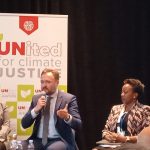


“LR participated in a Human Rights conference as a speaker and distributed Information, Education, and Communication (IEC) materials.
Voice of Human Rights
We protest because we love Humans! Get up, stand up, Stand up for Human rights
We protest because we believe in the inherent dignity of every individual. No one should be subjected to violence simply for expressing their religion differently. If this makes you uncomfortable, it’s time for self-reflection. True peace can only exist where human rights are respected, where people have enough to eat, and where individuals are free. You cannot end justice or hide the truth. The truth, justice, and our fight for human rights cannot be silenced.

Mr sheraz Khan (Social Activist)
Human Rights Day Activities
Report Human Rights -16 Day activism activities Dec 2020 (Report)
Human Rights Defined
What are your human rights?
Let’s start with some basic human rights definitions:
The rights you have simply because you are human.
If you were to ask people in the street, “What are human rights?” you would get many different answers. They would tell you the rights they know about, but very few people know all their rights.
As covered in the definitions above, a right is a freedom of some kind. It is something to which you are entitled by virtue of being human.
Human rights are based on the principle of respect for the individual. Their fundamental assumption is that each person is a moral and rational being who deserves to be treated with dignity. They are called human rights because they are universal. Whereas nations or specialized groups enjoy specific rights that apply only to them, human rights are the rights to which everyone is entitled—no matter who they are or where they live—simply because they are alive.
Yet many people, when asked to name their rights, will list only freedom of speech and belief and perhaps one or two others. There is no question these are important rights, but the full scope of human rights is very broad. They mean choice and opportunity. They mean the freedom to obtain a job, adopt a career, select a partner of one’s choice and raise children. They include the right to travel widely and the right to work gainfully without harassment, abuse and threat of arbitrary dismissal. They even embrace the right to leisure.
In ages past, there were no human rights. Then the idea emerged that people should have certain freedoms. And that idea, in the wake of World War II, resulted finally in the document called the Universal Declaration of Human Rights and the thirty rights to which all people are entitled.
A Brief History of Human Rights
The decrees Cyrus made on human rights were inscribed in the Akkadian language on a baked-clay cylinder.
 In 539 B.C., the armies of Cyrus the Great, the first king of ancient Persia, conquered the city of Babylon. But it was his next actions that marked a major advance for Man. He freed the slaves, declared that all people had the right to choose their own religion, and established racial equality. These and other decrees were recorded on a baked-clay cylinder in the Akkadian language with cuneiform script. Known today as the Cyrus Cylinder, this ancient record has now been recognized as the world’s first charter of human rights. It is translated into all six official languages of the United Nations and its provisions parallel the first four Articles of the Universal Declaration of Human Rights.
In 539 B.C., the armies of Cyrus the Great, the first king of ancient Persia, conquered the city of Babylon. But it was his next actions that marked a major advance for Man. He freed the slaves, declared that all people had the right to choose their own religion, and established racial equality. These and other decrees were recorded on a baked-clay cylinder in the Akkadian language with cuneiform script. Known today as the Cyrus Cylinder, this ancient record has now been recognized as the world’s first charter of human rights. It is translated into all six official languages of the United Nations and its provisions parallel the first four Articles of the Universal Declaration of Human Rights.
Cyrus the Great, the first king of Persia, freed the slaves of Babylon, 539 B.C.
 From Babylon, the idea of human rights spread quickly to India, Greece and eventually Rome. There the concept of “natural law” arose, in observation of the fact that people tended to follow certain unwritten laws in the course of life, and Roman law was based on rational ideas derived from the nature of things.
From Babylon, the idea of human rights spread quickly to India, Greece and eventually Rome. There the concept of “natural law” arose, in observation of the fact that people tended to follow certain unwritten laws in the course of life, and Roman law was based on rational ideas derived from the nature of things.
Documents asserting individual rights, such as the Magna Carta (1215), the Petition of Right (1628), the US Constitution (1787), the French Declaration of the Rights of Man and of the Citizen (1789), and the US Bill of Rights (1791) are the written precursors to many of today’s human rights documents.
 By 1948, the United Nations’ new Human Rights Commission had captured the attention of the world. Under the dynamic chairmanship of Eleanor Roosevelt—President Franklin Roosevelt’s widow, a human rights champion in her own right and the United States delegate to the UN—the Commission set out to draft the document that became the Universal Declaration of Human Rights. Roosevelt, credited with its inspiration, referred to the Declaration as the “international Magna Carta for all mankind.” It was adopted by the United Nations on December 10, 1948.
By 1948, the United Nations’ new Human Rights Commission had captured the attention of the world. Under the dynamic chairmanship of Eleanor Roosevelt—President Franklin Roosevelt’s widow, a human rights champion in her own right and the United States delegate to the UN—the Commission set out to draft the document that became the Universal Declaration of Human Rights. Roosevelt, credited with its inspiration, referred to the Declaration as the “international Magna Carta for all mankind.” It was adopted by the United Nations on December 10, 1948.
In its preamble and in Article 1, the Declaration unequivocally proclaims the inherent rights of all human beings: “Disregard and contempt for human rights have resulted in barbarous acts which have outraged the conscience of mankind, and the advent of a world in which human beings shall enjoy freedom of speech and belief and freedom from fear and want has been proclaimed as the highest aspiration of the common people….All human beings are born free and equal in dignity and rights.”
The Member States of the United Nations pledged to work together to promote the thirty Articles of human rights that, for the first time in history, had been assembled and codified into a single document. In consequence, many of these rights, in various forms, are today part of the constitutional laws of democratic nations.
Human Rights Violations
Human rights advocates agree that, sixty years after its issue, the Universal Declaration of Human Rights is still more a dream than reality. Violations exist in every part of the world. For example, Amnesty International’s 2009 World Report and other sources show that individuals are:
- Tortured or abused in at least 81 countries
- Face unfair trials in at least 54 countries
- Restricted in their freedom of expression in at least 77 countries
Not only that, but women and children in particular are marginalized in numerous ways, the press is not free in many countries, and dissenters are silenced, too often permanently. While some gains have been made over the course of the last six decades, human rights violations still plague the world today.
To help inform you of the true situation throughout the world, this section provides examples of violations of six Articles of the Universal Declaration of Human Rights (UDHR):
ARTICLE 3 – THE RIGHT TO LIVE FREE
“Everyone has the right to life, liberty and security of person.”
An estimated 6,500 people were killed in 2007 in armed conflict in Afghanistan—nearly half being noncombatant civilian deaths at the hands of insurgents. Hundreds of civilians were also killed in suicide attacks by armed groups.
In Brazil in 2007, according to official figures, police killed at least 1,260 individuals—the highest total to date. All incidents were officially labeled “acts of resistance” and received little or no investigation.
In Uganda, 1,500 people die each week in the internally displaced person camps. According to the World Health Organization, 500,000 have died in these camps.
Vietnamese authorities forced at least 75,000 drug addicts and prostitutes into 71 overpopulated “rehab” camps, labeling the detainees at “high risk” of contracting HIV/AIDS but providing no treatment.
Human Rights Violations. ARTICLE 4 – NO SLAVERY
“No one shall be held in slavery or servitude; slavery and the slave trade shall be prohibited in all their forms.”
In northern Uganda, the LRA (Lord’s Resistance Army) guerrillas have kidnapped 20,000 children over the past twenty years and forced them into service as soldiers or sexual slaves for the army.
In Guinea-Bissau, children as young as five are trafficked out of the country to work in cotton fields in southern Senegal or as beggars in the capital city. In Ghana, children five to fourteen are tricked with false promises of education and future into dangerous, unpaid jobs in the fishing industry.
In Asia, Japan is the major destination country for trafficked women, especially women coming from the Philippines and Thailand. UNICEF estimates 60,000 child prostitutes in the Philippines.
The US State Department estimates 600,000 to 820,000 men, women and children are trafficked across international borders each year, half of whom are minors, including record numbers of women and girls fleeing from Iraq. In nearly all countries, including Canada, the US and the UK, deportation or harassment are the usual governmental responses, with no assistance services for the victims.
In the Dominican Republic, the operations of a trafficking ring led to the death by asphyxiation of 25 Haitian migrant workers. In 2007, two civilians and two military officers received lenient prison sentences for their part in the operation.
In Somalia in 2007, more than 1,400 displaced Somalis and Ethiopian nationals died at sea in trafficking operations.
ARTICLE 5 – NO TORTURE
“No one shall be subjected to torture or to cruel, inhuman or degrading treatment or punishment.”
In 2008, US authorities continued to hold 270 prisoners in Guantánamo Bay, Cuba, without charge or trial, subjecting them to “water-boarding,” torture that simulates drowning. Former-President George W. Bush authorized the CIA to continue secret detention and interrogation, despite its violation of international law.
In Darfur, violence, atrocities and abduction are rampant and outside aid all but cut off. Women in particular are the victims of unrestrained assault, with more than 200 rapes in the vicinity of a displaced persons camp in one five-week period, with no effort by authorities to punish the perpetrators.
In the Democratic Republic of the Congo, acts of torture and ill treatment are routinely committed by government security services and armed groups, including sustained beatings, stabbings and rapes of those in custody. Detainees are held incommunicado, sometimes in secret detention sites. In 2007, the Republican Guard (presidential guard) and Special Services police division in Kinshasa arbitrarily detained and tortured numerous individuals labeled as critics of the government.
ARTICLE 13 – FREEDOM TO MOVE
“1. Everyone has the right to freedom of movement and residence within the borders of each State.
“2. Everyone has the right to leave any country, including his own, and to return to his country.”
In Algeria, refugees and asylum-seekers were frequent victims of detention, expulsion or ill treatment. Twenty-eight individuals from sub-Saharan African countries with official refugee status from the United Nations High Commissioner for Refugees (UNHCR) were deported to Mali after being falsely tried, without legal counsel or interpreters, on charges of entering Algeria illegally. They were dumped near a desert town where a Malian armed group was active, without food, water or medical aid.
In Kenya, authorities violated international refugee law when they closed the border to thousands of people fleeing armed conflict in Somalia. Asylum-seekers were illegally detained at the Kenyan border without charge or trial and forcibly returned to Somalia.
In northern Uganda, 1.6 million citizens remained in displacement camps. In the Acholisubregion, the area most affected by armed conflict, 63 percent of the 1.1 million people displaced in 2005 were still living in camps in 2007, with only 7,000 returned permanently to their places of origin.
ARTICLE 18 – FREEDOM OF THOUGHT
“Everyone has the right to freedom of thought, conscience and religion; this right includes freedom to change his religion or belief, and freedom, either alone or in community with others and in public or private, to manifest his religion or belief in teaching, practice, worship and observance.”
In Myanmar, the military junta crushed peaceful demonstrations led by monks, raided and closed monasteries, confiscated and destroyed property, shot, beat and detained protesters, and harassed or held hostage the friends and family members of the protesters.
In China, Falun Gong practitioners were singled out for torture and other abuses while in detention. Christians were persecuted for practicing their religion outside state-sanctioned channels.
In Kazakhstan, local authorities in a community near Almaty authorized the destruction of twelve homes, all belonging to Hare Krishna members, falsely charging that the land on which the homes were built had been illegally acquired. Only homes belonging to members of the Hare Krishna community were destroyed.
ARTICLE 19 – FREEDOM OF EXPRESSION
“Everyone has the right to freedom of opinion and expression; this right includes freedom to hold opinions without interference and to seek, receive and impart information and ideas through any media and regardless of frontiers.”
In Sudan, dozens of human rights defenders were arrested and tortured by national intelligence and security forces.
In Ethiopia, two prominent human rights defenders were convicted on false charges and sentenced to nearly three years in prison.
In Somalia, a prominent human rights defender was murdered.
In the Democratic Republic of the Congo, the government attacks and threatens human rights defenders and restricts freedom of expression and association. In 2007, provisions of the 2004 Press Act were used by the government to censor newspapers and limit freedom of expression.
Russia repressed political dissent, pressured or shut down independent media and harassed nongovernmental organizations. Peaceful public demonstrations were dispersed with force, and lawyers, human rights defenders and journalists were threatened and attacked. Since 2000, the murders of seventeen journalists, all critical of government policies and actions, remain unsolved.
In Iraq, at least thirty-seven Iraqi employees of media networks were killed in 2008, and a total of 235 since the invasion of March 2003, making Iraq the world’s most dangerous place for journalists.
ARTICLE 21 – RIGHT TO DEMOCRACY
“1. Everyone has the right to take part in the government of his country, directly or through freely chosen representatives.
“2. Everyone has the right to equal access to public service in his country.
“3. The will of the people shall be the basis of the authority of government; this will shall be expressed in periodic and genuine elections which shall be by universal and equal suffrage and shall be held by secret vote or by equivalent free voting procedures.”
In Zimbabwe, hundreds of human rights defenders and members of the main opposition party, the Movement for Democratic Change (MDC), were arrested for participating in peaceful gatherings.
In Pakistan, thousands of lawyers, journalists, human rights defenders and political activists were arrested for demanding democracy, the rule of law and an independent judiciary.
In Cuba, at the end of 2007, sixty two prisoners of conscience remained incarcerated for their nonviolent political views or activities.
SUMMARY
Human rights exist, as embodied in the Universal Declaration of Human Rights and the entire body of international human rights law. They are recognized—at least in principle—by most nations and form the heart of many national constitutions. Yet the actual situation in the world is far distant from the ideals envisioned in the Declaration.
To some, the full realization of human rights is a remote and unattainable goal. Even international human rights laws are difficult to enforce and pursuing a complaint can take years and a great deal of money. These international laws serve as a restraining function but are insufficient to provide adequate human rights protection, as evidenced by the stark reality of abuses perpetrated daily.
Discrimination is rampant throughout the world. Thousands are in prison for speaking their minds. Torture and politically motivated imprisonment, often without trial, are commonplace, condoned and practiced—even in some democratic countries.
But you can make a difference. Become informed by reading the reports on human rights around the world.
Purchase copies of The Story of Human Rights booklets from our online bookstore, to distribute in your local area and to those you know, as well as within your local Government.

